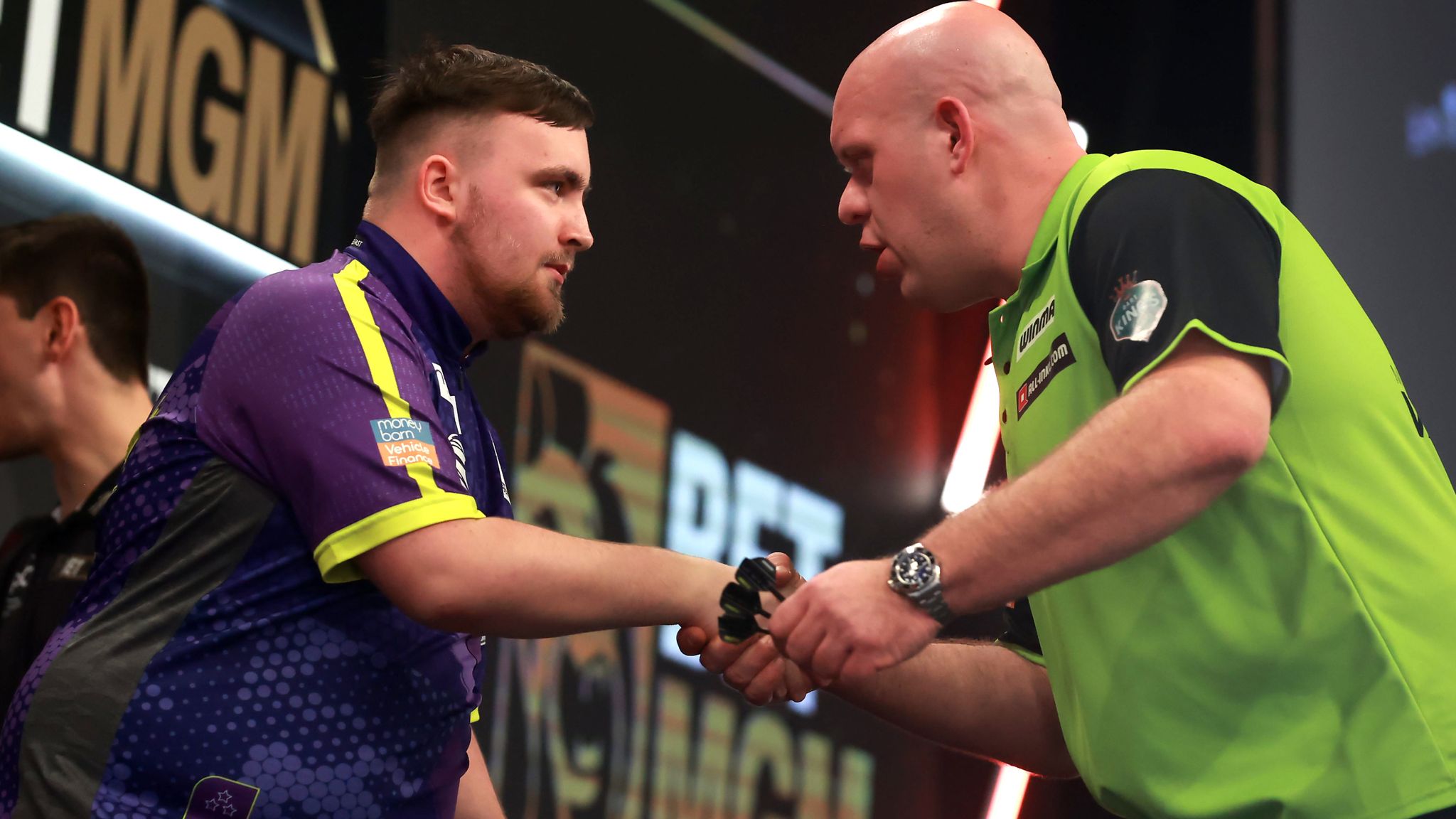
In the electrifying world of professional darts, where precision meets passion, a storm is brewing. Michael van Gerwen, the three-time world champion and one of the sport’s most dominant figures, has issued a fervent public appeal to the Professional Darts Corporation (PDC). His call comes as 17-year-old prodigy Luke Littler continues to captivate audiences and dominate headlines, cashing in on his meteoric rise. Van Gerwen, known for his fiery demeanor and unrelenting competitive spirit, is urging his peers to shed their awe of the young star and meet him head-on, while also pushing the PDC to address the pressures surrounding Littler’s rapid ascent.
Van Gerwen’s plea stems from his frustration with what he perceives as excessive deference shown to Littler by fellow players. The Dutchman, whose trophy cabinet boasts over 150 titles, believes the darts community is giving the teenager too much respect, allowing him to dominate without enough resistance. “I don’t think it’s fair on him,” van Gerwen remarked in a candid press conference earlier this year, addressing the intense media spotlight on Littler. He argues that the constant hype places undue pressure on the young player, who is still navigating the complexities of professional sport and global fame. Van Gerwen’s words carry weight, reflecting both his competitive ethos and a genuine concern for the sport’s future.
Littler, dubbed “The Nuke,” has taken the darts world by storm since bursting onto the scene. His runner-up finish at the 2024 PDC World Championship, where he became the youngest finalist in history, catapulted him into the spotlight. Since then, the teenager has racked up endorsements, sponsorships, and tournament victories, amassing a fortune and a fanbase that rivals darts’ biggest names. His ability to throw 180s with ease and maintain composure under pressure has drawn comparisons to a young Van Gerwen or Phil Taylor. Yet, this rapid rise has sparked debate about how the sport should handle its newest superstar.
Van Gerwen’s appeal to the PDC is multifaceted. He is calling for a cultural shift within the darts community, urging players to challenge Littler with the same intensity they would any top-tier opponent. “If you keep giving him too much respect, he’ll walk all over you,” Van Gerwen warned, his words laced with the intensity of a man who has battled for every inch of his success. He believes that treating Littler as an equal on the oche will not only elevate the sport’s competitiveness but also help the teenager grow as a player. By facing tougher opposition, Littler can hone his skills and avoid the pitfalls of early burnout.
Beyond the players, Van Gerwen is pressing the PDC to take a more active role in managing Littler’s career trajectory. The organization, which oversees professional darts, has been instrumental in growing the sport’s global reach, but Van Gerwen suggests it must now focus on protecting its young talent. The relentless schedule of tournaments, media obligations, and commercial deals could overwhelm even the most seasoned professional, let alone a teenager. Van Gerwen’s appeal hints at a need for structured support, such as mentoring programs or limits on non-competitive commitments, to ensure Littler’s longevity in the sport.
The backdrop to Van Gerwen’s plea is a darts landscape that has never been more competitive or lucrative. Prize money has soared, with top players earning millions, and the sport’s global fanbase continues to expand. Littler’s success is a boon for darts, drawing younger audiences and new sponsors. However, Van Gerwen’s comments underscore a tension between commercial growth and the sport’s competitive integrity. He fears that without intervention, the hype surrounding Littler could distort the balance of competition, creating a narrative where one player overshadows the field.
Fans and analysts have mixed reactions to Van Gerwen’s stance. Some see it as a veteran’s attempt to reassert dominance in a sport increasingly captivated by youth. Others view it as a constructive critique, aimed at preserving the essence of darts as a meritocracy where skill, not hype, reigns supreme. On social media, discussions are rife, with some fans praising Van Gerwen’s passion and others defending Littler’s right to shine. The debate highlights the broader challenge of nurturing talent in a sport that thrives on intensity and spectacle.
As Littler prepares for upcoming tournaments, including high-profile events like the Premier League Darts, all eyes are on how the PDC and its players will respond. Will Van Gerwen’s call ignite a new wave of competitiveness, pushing Littler to even greater heights? Or will the young star continue to “cash in,” as his marketability and talent reshape the sport? For now, Van Gerwen remains steadfast, a champion whose love for darts drives his every word. “We need to play our game, not his,” he declared, a rallying cry for a sport at a crossroads.
Leave a Reply